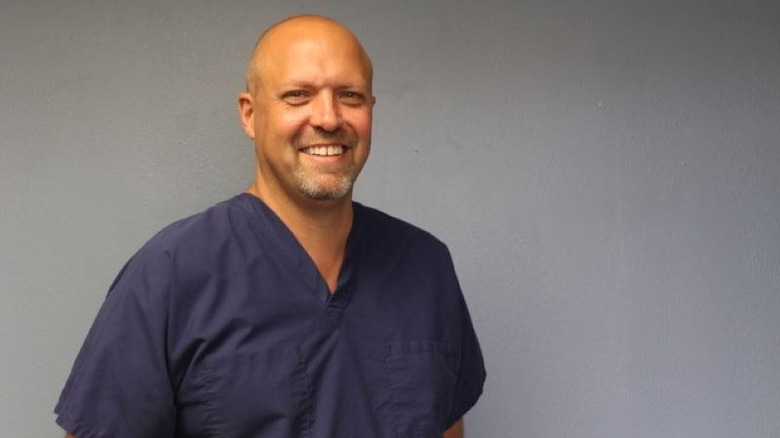Ketamine is an anesthetic that has been used in hospitals for decades. However, ketamine has recently gained popularity as a therapy for people with treatment-resistant depression, anxiety, and post-traumatic stress disorder (PTSD).
Rep. Alexandria Ocasio-Cortez has long supported ketamine therapy and other psychedelic drugs as a treatment option for veterans with PTSD and has introduced legislation to allow research into ketamine therapy multiple times. Early in July 2024, she continued the fight by introducing an amendment to the National Defense Authorization Act that demanded the Department of Defense perform further research into the benefits of psychedelic drugs for the treatment of PTSD.
Though the amendment is controversial in Congress, it has support among veterans and the institutions that provide them care. In Arizona, the Veteran’s Administration (VA) recently partnered with Ketamine Wellness Centers (KWC) to provide ketamine therapy to veterans with treatment-resistant PTSD. Kevin Nicholson, the CEO of Ketamine Wellness Centers, took some time to talk with Health Digest about the partnership, how ketamine therapy works, and how it can benefit veterans and others with treatment-resistant mental health issues.
Studying ketamine as a treatment for mental health issues

Can you tell us a little about your background in the medical field?
I have been a licensed registered nurse for over 30 years. I have worked as a clinician in both the acute hospital setting and the post-acute setting. For a number of years, I worked in hospital administration as the Chief Nursing Officer, Chief Operations Officer, and CEO.
However, about 15 years ago I lost my position during a hospital acquisition and found myself back in scrubs as an ICU/ER nurse at the Arizona Burn Center. This was really the first time in my clinical career that I utilized ketamine as an anesthetic, especially with pediatric burn injuries. I was really impressed [by] how effective ketamine was as an anesthetic but also its safety profile with little to no respiratory effect.
How did you learn about ketamine as a treatment for mental health issues?
In 2011, I had the opportunity to participate in a small research study at an office in Scottsdale. I was hired to be the clinician in the treatment room overseeing the patient undergoing the ketamine infusion, monitoring their vital signs and managing their medications. As the treatment was initiated, I was able to talk with patients and hear their stories of failed treatments and how these infusions not only had been so transformative but also [lacked] any side effects post-infusion.
At the time, I was also made aware of some of the smaller studies being conducted at very reputable medical facilities as well as the National Institute of Mental Health. The results they were publishing were consistent with the outcomes we were seeing, and from there, we knew this was going to be huge.
What ketamine can treat and who can benefit
What kind of mental health issues can ketamine help treat?
Ketamine has been used in healthcare for more than 50 years. It affects your body by helping stimulate the regrowth of neural pathways. For example, years of stress, anxiety, [and] PTSD can start to wear down your neural pathways, and ketamine helps repair those neural pathways.
Ketamine Wellness Centers’ mission is to provide personalized, high-quality care for people suffering from afflictions where ketamine infusions have proven a successful treatment option, while actively researching ketamine’s efficacy to treat additional conditions. Our patients are those who are suffering from a variety of mental illnesses ranging from treatment-resistant depression, anxiety, obsessive disorder, addiction, and PTSD.
How is ketamine being used to treat PTSD?
PTSD is known to damage synaptic connections in the brain that affect information flow and patterns of thought. Ketamine treatments are shown to successfully repair and improve these connections while also building new, healthy ones. Left untreated, or when traditional treatments are ineffective, PTSD is unlikely to disappear and can contribute to chronic pain, depression, drug and alcohol abuse, and suicide. PTSD damage can reappear over time if the treatment is stopped and no other support strategies are put in place.
What kinds of people can benefit from ketamine therapy?
Ketamine therapy can help people who are in the process of healing conditions such as chronic pain, depression, PTSD, and anxiety. It is a highly effective treatment that only takes a few sessions to start seeing measurable results, as opposed to a lifelong prescription of medications with troubling side effects.
How ketamine therapy works
How is ketamine therapy administered, and how safe is it when done properly?
Traditionally, treatment is done by IV infusion and is produced commercially so administrators know exactly how much is being used for treatment. Ketamine itself is not painful or shouldn’t be painful. In fact, we hear quite the opposite; quite a few people will feel relaxed during it, or if you’re one of those that have the constant negative ruminating thoughts, sometimes those can stop or quiet down.
For all treatments, KWC providers are trained to administer in the right care and patient safety settings — this includes recent expansions to treatment, such as Spravato. Spravato is an FDA-approved esketamine nasal spray that’s taken with an oral antidepressant, providing a modernized and effective treatment option for those experiencing depressive symptoms.
Why isn’t ketamine currently FDA-approved as a treatment for mental health issues?
Ketamine is FDA-approved as an anesthetic and has been out of patent protection in its current molecular state for a number of years. Since ketamine is out of patent, large researchers are not willing to invest in the research required to seek approval for ketamine as an antidepressant without getting the exclusive rights to the medication to recoup their research expense.
How does that complicate access to ketamine therapy?
Since ketamine is not an antidepressant, it can be administered “off-label” by a licensed provider. However, it does require proper documentation showing the patient is aware it may not be covered by insurance and would have to pay in cash. Because of the costs of healthcare services, many times, the cash price of treatment is not within the range for patients or families. This also means there are limited facilities available for this treatment because of the costs associated, making it more difficult for middle- to lower-income families to find centers close by.
Ketamine for veterans with PTSD
Prostock-studio/Shutterstock
Can you tell us about the partnership between the Ketamine Wellness Centers and the VA?
We are one of the few ketamine providers in the U.S. authorized to partner with the VA and remain committed to offering exceptional therapeutic services that meet the needs of each veteran seeking quality mental health care. On June 1, 2024, KWC initiated its first partnership with the Veterans Administration to offer ketamine treatments to veterans at no out-of-pocket cost (with prior authorization from the VA) at our location in Burnsville, [Minnesota]. This past May, we expanded the program to our Arizona clinics in Phoenix, Tucson, and Mesa-Gilbert.
The program covers patients who are experiencing post-traumatic stress disorder (PTSD), major depression, and anxiety, and who have exhausted all traditional medical treatments. These partnerships are in addition to the Hero Discount offered at clinics nationwide to cover partial out-of-pocket expenses of the treatment for military veterans and first responders.
How will this partnership help people who have served our country?
More than 20 million veterans live in the United States, and unfortunately, almost half experience mental health issues.
At KWC, we take great pride in supporting our veterans across the country. Unfortunately, veterans often face challenges securing the care they seek, such as access and affordability, and our partnership with the Veterans Administration will help to alleviate some of them. The VA is a dedicated service organization that shares our commitment to supporting our veterans on the path to securing the mental health services they need to gain control over their lives again. We anticipate even more VA contracts as a result of the resources KWC has committed to expanding insurance coverage for our patients.
Ketamine Wellness Centers (KWC) is the largest ketamine therapy provider in the United States with 13 clinic locations serving communities across nine states. For more information about KWC’s locations, services, and hours of operation, please visit www.ketaminewellnesscenters.com or follow them on Facebook and LinkedIn.
This interview was edited for clarity.


